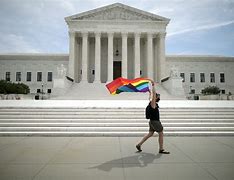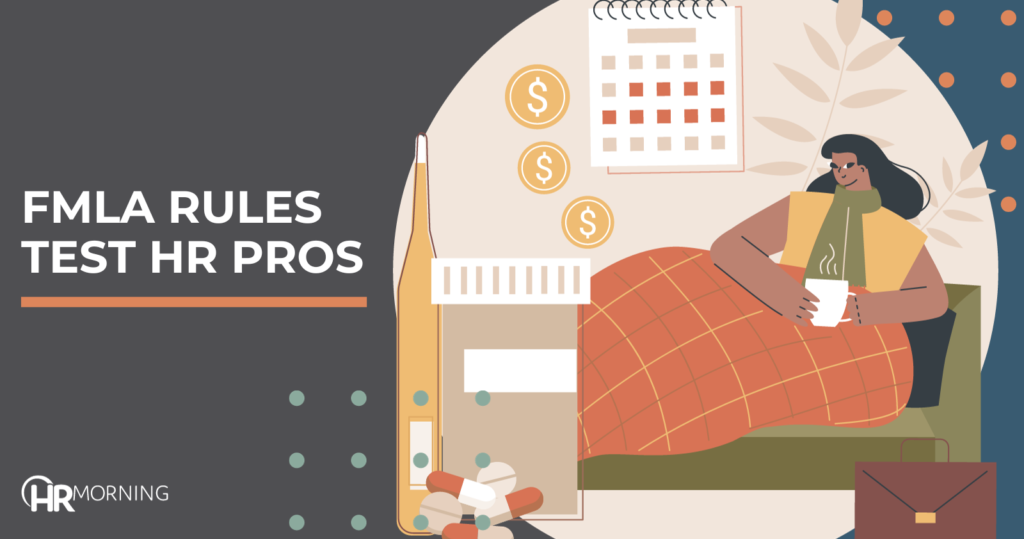Below is a review of the posts (on Facebook, LinkedIn, and X [formerly Twitter]) from the past week. You can check out the full posts by clicking on the links.

The post on Sunday 12/31/2023 noted another former Peoples Gas worker alleges he experienced racial discrimination at utility company. This post updates our prior post from Tues. 12/19/2023. Darryl Price claims he and other Black workers were denied the opportunity to transfer to other departments and missed out on overtime opportunities.
Price initially thought he landed one of the best jobs when he became a utility worker for Peoples Gas. But as the years went on, he faced discipline that he believes was given out more harshly to him because of his race. The stress and harassment eventually led to him resigning in January. Now, the 61-year-old is part of a growing group of current and former Black Peoples Gas workers who are speaking out about the alleged treatment they say they faced while employed at the utility company. In November 2023, nearly a dozen of them filed a lawsuit alleging the company racially discriminated against its Black employees. See our prior post.
Price also filed a separate federal lawsuit against Peoples Gas. What he alleges in the pending suit is noted in the post (including discrimination, harassment and retaliation). Peoples Gas said they “strongly deny these claims, and have done so in court ever since the lawsuit was filed in January 2023 by a former employee. We will continue to defend this matter vigorously.”
Price said he felt compelled to speak out because he doesn’t see how other Black workers who are younger would have a future at the company. His statement is in the post. Price had started working for the company in November 2016 as a utility worker after completing a job training program. He remembers hearing at least two of his co-workers use racial slurs but at the time he tried not to dwell on it. What he says of that time is in the post. Then things changed when he was accused of not showing up for work. He said he felt like the workplace became hostile. What happened after that is in the post.
Price alleged in his suit that at one point he was suspended for 10 days because he was accused of causing damage to a dump site, but others were not disciplined for making similar mistakes. And as to another 10-day suspension? See the post for its alleged basis and what Price says about it. Cynthia Price, his wife, said she noticed the toll the job was having on him. Some of the things she saw are in the post. Price said he felt his only option was to quit his job before he became a journeyman, a position that would have meant higher pay.
TAKEAWAY: More smoke might mean fire in the suits against Peoples Gas – keep your eyes and ears on this one. And treat all of your employees the same regardless of race or any other protected characteristic.

The posts on Monday 1/1/2024 , here, here and here, noted It’s a new day, a new year. Employers should adapt to new laws and keep their business operating.
TAKEAWAY Some laws go into effect on January 1, others during the year. Keep in touch with your employment lawyer for updates.

The post on Tuesday 1/2/2024 suggested the Administration is using Supreme Court’s Bostock decision to reshape discrimination law nationwide. The US Supreme Court’s landmark decision in Bostock v. Clayton County is changing civil rights law despite the potentially narrow scope of the decision itself. In 2020, the Court decided that the definition of sex discrimination under Title VII of the Civil Rights Act of 1964, which pertains to employment law, includes sexual orientation and gender identity. Since then, the current administration has attempted to use the case to shift protections against sex discrimination in federal law to align with Bostock — even in ways other than under Title VII. While it is not uncommon for a decision in one area to be applied in another, there are always those who think it should not be so expanded.
The majority opinion, written by Justice Neil Gorsuch, attempted to limit the decision’s scope by saying it only addressed employment law. The decision was based on reproductive biology as noted in the post. Some extend the holding in the decision to Title IX and more as noted in the post.
On his first day in office, President Joe Biden signed an executive order which the White House based in part on Bostock. That order started many agency rule changes using language such as “consistent with the reasoning in Bostock.” What the executive order said, and its wide application, is quoted in the post. Other ways the order has been used are noted in the post. And last month the departments of Justice and Health and Human Services intervened in a state court lawsuit, citing Bostock to argue that the state’s ban on Medicaid reimbursements for transgender surgeries, cross-sex hormones, and other related drugs violated federal anti-discrimination law. The Department of Education also used Bostock in its Title IX enforcement – see the post. The Department of Agriculture then piggy-backed on what Education had done – that too is in the post. Some compare the expanded use of Bostock to what happened with the Supreme Court’s 2015 decision in Obergefell v. Hodges (what that said is in the post).
While federal agencies are applying the expanded definition of “sex discrimination” to other aspects of federal law, local governments are using it as a basis not to comply with conservative state laws. See the post for some examples.
TAKEAWAY: Currently Bostock is the law of the land – know what that means for your business. Get help from an employment lawyer if needed.

The post on Wednesday 1/3/2024 was about understanding any difference between unpaid HOA or condo association dues and fines. There is often confusion between the two, but the consequences for each can differ significantly.
As mandated by some states’ law or an association’s covenants, conditions, and restrictions (CC&R), unpaid association dues can create an automatic lien against a home. The purpose for this is noted in the post. On the other hand, unpaid fines for violations of the association’s governing documents, including the rules, often do not create an automatic lien against the property. What happens if those go unpaid is described in the post. This disparity makes sense if you think about it: associations budget for dues, but not for fines from violations. So let’s do a quick Q&A on unpaid dues and fines.
Q: What happens if a homeowner does not pay their association dues?
A: (Ordinarily) an automatic lien will be created against the property and the association can take legal action to collect the unpaid amount.
Q: Are homeowners responsible for paying unpaid fines?
A: Responsible, yes. But since no Homeowners are not automatically responsible for paying unpaid automatic lien arises, what the association must do to collect is in the post.
Q: What are covenants, conditions, and restrictions?
A: Covenants, conditions, and restrictions (CC&Rs), are also referred to as the Declaration. What they are, and what they often deal with, are in the post.
TAKEAWAY: Understand what you can and cannot do in your homeowners’ or condo association – consult with a community association lawyer if there are questions.

In the post on Thursday 1/4/2024, we had HOA (and condo) Q&A: How long must HOAs keep the minutes from Board meetings? The answer depends on both applicable state law and the association’s governing documents. There might also be a time limit within which an association must respond to records inspection requests. Some statutes have penalties for non-compliance – an example is in the post.
TAKEAWAY: Owner requests for board meeting minutes and other association records are subject to both the provisions of the governing documents and applicable state law – a community association lawyer can help in this area.

The post on Friday 1/5/2024 was about the NLRB on what employers get wrong. Most of this applies to everyone – employer and employee, union and non-union. This includes the NLRB investigation processes, unfair labor practices, labor laws regarding social media posts, the impact of workplace rules on employee rights, and the legality of non-compete agreements.
The National Labor Relations Act permits employees to take concerted activity relative to working conditions (which includes but it not limited to wages). Again, this applies even in non-union workplaces. What “concerted activity” means is noted in the post. Common issues before the NRB include cases where employees were fired for discussing wages or complaints about handbooks prohibiting certain employee rights (like those noted in the post). Just a few of the rights granted to employees are discussed in the post.
If they think there is a violation, employees can file charges with the NLRB alleging unfair labor practices (ULPs). That leads to an investigation and resolution. The reach of the NLRB is a bit limited – see the post for who is included and who excluded from its ambit. After the complaint and investigation, the next step might be the NLRB’s creation of an allegation letter. The contents of the letter are described in the post. And if the NLRB thinks there is merit to the employee’s allegation? See the post. If the matter isn’t settled, then the NLRB will file suit and an administrative law judge will hear the case.
On another front, union representation is increasing. What the union must do to be recognized is in the post. How that often plays out in the real world is also in the post. And if unions do what they need to, then the employer must act as noted in the post.
A big area addressed by the NLRB is whether social media posts from employees complaining about a workplace would be considered protected concerted activity. The key questions the NLRB reviews to determine if would be protected includes whether the post was in a group setting, whether it could it be a logical outgrowth of prior concerns raised by employees, and others as listed in the post. If the answer to any of the questions is yes, then there might have been protected concerted activity. Examples of things that are not within that category are in the post. Employers seeking to discipline or fire an employee for a social media posting should be cautious. Why? See the post.
The NLRB has also been active relative to handbooks and policies. In a recent case with Stericycle Inc., the NLRB adopted a new legal standard for evaluating work rules and policies that are challenged as being facially unlawful. A description of the new standard is in the post. Under the new standard, the challenged rule or policy is presumed unlawful under certain circumstances; then employers may rebut the presumption by proving that the challenged work rule or policy advances a legitimate and substantial business interest of the employer and is narrowly tailored to address such legitimate interest. And if the employer makes its showing? See the post. Examples of policies and actions that are acceptable and those that are not are also in the post. What is an employer violates the NLRA? It might be subject to punitive damages including the things listed in the post.
And perhaps the biggest are now involving the NLRB is that of non-compete agreements. A recent memo from the NLRB General Counsel outlined how non-compete and severance agreements may interfere with employees’ Section 7 rights. The General Counsel’s arguments are noted in the post. But the memo does not refer to executive-level non-compete agreements.
TAKEAWAY: ALL employers, and ALL employees, should know their workplace rights and obligations and what can and cannot be enforced. Consultation with an employment lawyer is a good idea.

Finally, in the post yesterday 1/6/2024, we learned about FMLA rules: 5 pitfalls to avoid. The number of issues that can come up related to the FMLA I huge. There are at least five pitfalls to avoid when administering FMLA leave. The first is miscalculating leave involving holidays (i.e., what is the FMLA leave entitlement when an employee takes leave during a week that includes a holiday). FMLA regulations are clear that if an employee takes a full workweek of FMLA leave and the week includes a holiday, the employee uses a full week of FMLA leave. But what if the employee takes FMLA leave for less than a full week during a week that includes a holiday? See the post. The Department of Labor’s explanation for the calculation is that the fraction is calculated by reference to the actual week during which the leave was taken, including any holiday. A detailed example is in the post.
Another pitfall is not paying exempt employees properly. Recall that the FMLA only requires unpaid leave. But it also allows employers to require employees to use accrued paid leave and lets employees choose to do that. So what happens if a salaried employee uses intermittent FMLA leave? See the post.
The other pitfalls – paperwork and notice-related missteps, getting eligibility wrong, and replacing workers for using FMLA leave – along with detailed descriptions and examples, are in the post.
TAKEAWAY: Employers subject to the FMLA must know how to apply and implements its provisions – an employment lawyer can help keep you out of legal hot water.

 York, Pennsylvania 17403
York, Pennsylvania 17403